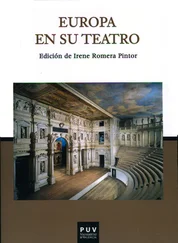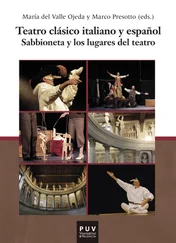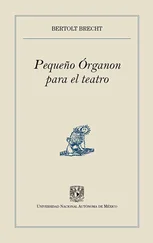Ritter, who ran the local hardware store, jimmied open the door to the town manager’s office, and several of us were soon searching around inside. The place was fairly neat, if only by virtue of being practically unfurnished. There was simply a chair, a desk, and the lamp on top of the desk. The rest of it was just empty floor space and bare walls. Even the drawers of the desk, as some of the more curious members of our search party discovered, were all empty. Ritter was checking the wall socket into which the lamp’s cord was plugged, and someone else was inspecting the fuse box at the back of the office. But these were merely stall tactics. No one wanted to reach under the lampshade and click the switch to find out whether the bulb had merely burned out or, more ominously, the place had been given over to darkness by design. The latter action, as all of us were aware, signaled that the tenure of any given town manager was no longer in effect.
At one time, our nexus of public services and functions was a traditional town hall rising up at the south end of Main Street. Rather than a small lamp clinging to the edge of a time-worn desk, that impressive structure was outfitted with a great chandelier. This dazzling fixture served as a beacon assuring us that the town’s chief official was still with us. When the town hall fell into decay and finally had to be abandoned, other buildings gave out their illumination — from the upper floors of the old opera house (also vacated in the course of time) to the present storefront office that had more recently served as the center of the town’s civic administration. But there always came a day when, without notice to anyone in the town, the light went out.
‘He’s not upstairs,’ Carnes yelled down to us from the town manager’s private rooms. At that precise moment, I had taken it upon myself to try the light switch. The bulb lit up, and everyone in the room went mute. After a time, somebody — to this day I cannot recall who it was — stated in a resigned voice, ‘He has left us.’
Those were the words that passed through the crowd outside the town manager’s office… until everyone knew the truth. No one even speculated that this development might have been caused by mischief or a mistake. The only conclusion was that the old town manager was no longer in control and that a new appointment would be made, if in fact this had not already been done.
Nonetheless, we still had to go through the motions. Throughout the rest of that gray morning and into the afternoon, a search was conducted. Over the course of my life, these searches were performed with increasingly greater speed and efficiency whenever one town manager turned up missing as the prelude to the installation of another. The buildings and houses comprising our town were now far fewer than in my childhood and youth. Whole sections that had once been districts of prolific activity had been transformed by a remarkable corrosion into empty lots where only a few bricks and some broken glass indicated that anything besides weeds and desiccated earth had ever existed there. During my years of youthful ambition, I had determined that one day I would have a house in a grand neighborhood known as The Hill. This area was still known as such, a designation bitterly retained even though the real estate in question — now a rough and empty stretch of ground — no longer rose to a higher elevation than the land surrounding it.
After satisfying ourselves that the town manager was nowhere to be found within the town, we moved out into the countryside. Just as we were going through the motions when we searched inside the town limits, we continued going through the motions as we tramped through the landscape beyond them. As previously stated, the time of year was close to the onset of winter, and there were only a few bare trees to obstruct our view in any direction as we wandered over the hardening earth. We kept our eyes open, but we could not pretend to be meticulous searchers.
In the past, no town manager had ever been found, either alive or dead, once he had gone missing and the light in his office had been turned off. Our only concern was to act in such a way that would allow us to report to the new town manager, when he appeared, that we had made an effort to discover the whereabouts of his predecessor. Yet this ritual seemed to matter less and less to each successive town manager, the most recent of whom barely acknowledged our attempts to locate the dead or living body of the previous administrator. ‘What?’ he said after he finally emerged from dozing behind the desk in his office.
‘We did the best we could,’ repeated one of us who had led the search, which on that occasion had taken place in early spring. ‘It stormed the entire time,’ said another.
After hearing our report, the town manager merely replied, ‘Oh, I see. Yes, well done.’ Then he dismissed us and returned to his nap.
‘Why do we even bother?’ said Leeman the barber when we were outside the town manager’s office. ‘We never find anything.’
I referred him and the others to the section of the town charter, a brief document to be sure, that required ‘a fair search of the town and its environs’ whenever a town manager went missing. This was part of an arrangement that had been made by the founders and that had been upheld throughout succeeding generations. Unfortunately, nothing in the records that had come to be stored in the new opera house, and were subsequently lost to the same fire that destroyed this shoddily constructed building some years before, had ever overtly stated with whom this arrangement had been made. (The town charter itself was now only a few poorly phrased notes assembled from recollections and lore, although the specifics of this rudimentary document were seldom disputed.) At the time, no doubt, the founders had taken what seemed the best course for the survival and prosperity of the town, and they forged an arrangement that committed their descendants to this same course. There was nothing extraordinary about such actions and agreements.
‘But that was years ago,’ said Leeman on that rainy spring afternoon. ‘I for one think that it’s time to find out just who we’re dealing with.’
Others agreed with him. I myself did not disagree. Nonetheless, we never did manage to broach the subject with the old town manager. But as we walked across the countryside on that day so close to the onset of winter, we talked among ourselves and vowed that we would pose certain questions to the new town manager, who usually arrived not long after the disappearance or abdication of the previous administrator, sometimes on the very same day.
The first matter we wished to take up was the reason we were required to conduct a futile search for missing town managers. Some of us believed that these searches were merely a way of distracting us, so that the new town manager could take office before anyone had a chance to observe by what means he arrived or from what direction he came. Others were of the opinion that these expeditions did in fact serve some purpose, although what that may have been was beyond our understanding. Either way, we were all agreed that it was time for the town — that is, what there was left of it — to enter a new and more enlightened era in its history. However, by the time we reached the ruined farmhouse, all our resolutions dissolved into the grayness in which that day had been enveloped.
Traditionally, the ruined farmhouse, along with the wooden shed that stood nearby, marked the point at which we ended our search and returned to town. It was now close to sundown, which would give us just enough time to be back in our homes before dark once we had made a perfunctory inspection of the farmhouse and its shed. But we never made it that far. This time we kept our distance from that farmhouse, which was no more than a jagged and tilting outline against the gray sky, as well as from the shed, a narrow structure of thin wooden planks that someone had hammered together long ago. There was something written across those weathered boards, markings that none of us had ever seen before. They were scored into the wood, as if with a sharp blade. Some of the letters were either missing or unreadable in the places where they were gouged into planks that had separated from one another. Carnes the trolley man was standing at my side.
Читать дальше












